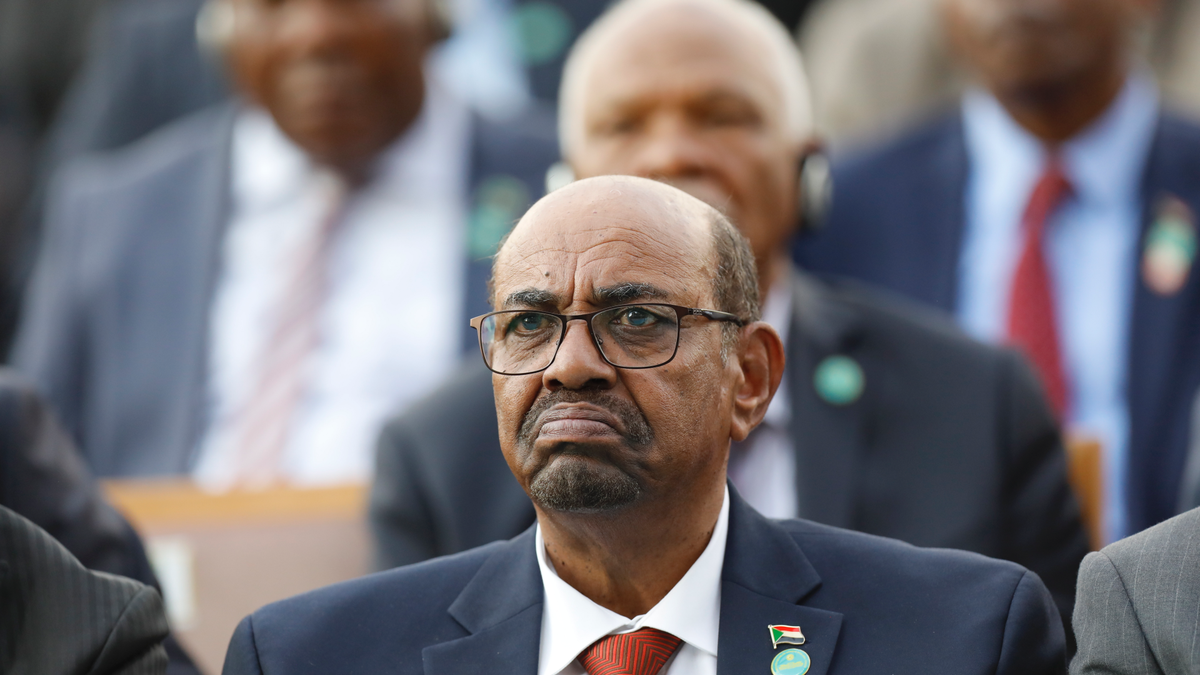
FILE - In this July 9, 2018 file photo, Sudan's President Omar Bashir attends a ceremony for Turkey's President Recep Tayyip Erdogan, at the Presidential Palace in Ankara, Turkey. An umbrella of independent professional unions on Sunday, Dec. 30, 2018 is calling on people to march on the presidential palace in Sudan’s capital, Khartoum, to demand that autocratic President Omar Bashir step down. (AP Photo/Burhan Ozbilici, File)
CAIRO – Human Rights Watch urged Sudan's government on Monday to instruct security forces not to use lethal force against protesters, citing independent groups as saying that 40 people have been killed since protests demanding President Omar al-Bashir's ouster erupted nearly two weeks ago.
The New York-based group said Sudanese forces have been using tear gas and live ammunition against protesters, as well as beating and arresting many. Scores have been injured and hundreds arrested, it said.
The statement came ahead of renewed protests Monday, with demonstrators in the capital, Khartoum, expected to try to march on al-Bashir's palace to demand he step down. An umbrella of independent professional unions that called for Monday's protests urged Sudanese to take to the streets elsewhere in the country.
Al-Bashir, an autocratic leader who has been in power since 1989, vowed in a meeting with police commanders Sunday that his government would not tolerate any attempt to undermine the stability and security of Sudan, according to the state news agency. An Islamist, he also sought to justify the killing of protesters, quoting from Islam's holy book, the Quran, according to a video clip of his comments.
"It's deterrence to others so that we can maintain security, which is a valuable commodity and, God willing, we will not risk the security of the citizens or the nation," said al-Bashir. "The objective is not to kill the protesters, but ... to safeguard the security and stability of citizens."
"President al-Bashir appears to be making public speeches that justify excessive use of force instead of condemning this brutality," said HRW's Jehanne Henry. "With more protests planned, Sudanese authorities should send an unambiguous message to all security forces to respect the rights of protesters and not to use lethal force."
Amnesty International has said it has "reliable reports" that 37 protesters were killed in the first five days of protests, which began Dec. 19. The government has acknowledged 19 deaths.
Monday's anticipated march on al-Bashir's Nile-side palace would be the second such action by protesters in Khartoum. Thousands attempted to reach the white neo-colonial building in central Khartoum last Tuesday, clashing with policemen who used tear gas and batons to disperse them.
Although the protesters never reached the palace, their action showed the depth of popular discontent with al-Bashir's rule. Protesters numbering in the hundreds or very low thousands gathered in a dozen or so venues across the city and fought pitched battles with police for hours before they dispersed after nightfall.
This time, the unions are urging protesters to stay on the streets until they usher in 2019 so that they can mark the anniversary of Sudan's independence on Jan. 1, 1956.
The unions said Sunday they seek to bring down al-Bashir "and his regime."
Sudan's economy has struggled for most of al-Bashir's rule. He has also failed to unite or keep the peace in the religiously and ethnically diverse nation, losing three quarters of the country's oil wealth when the mainly animist and Christian south seceded in 2011, following a referendum in which southerners voted overwhelmingly in favor of independence.
A year earlier, al-Bashir, now in his mid-70s, was indicted by the International Criminal Court for genocide in Sudan's western region of Darfur.




















